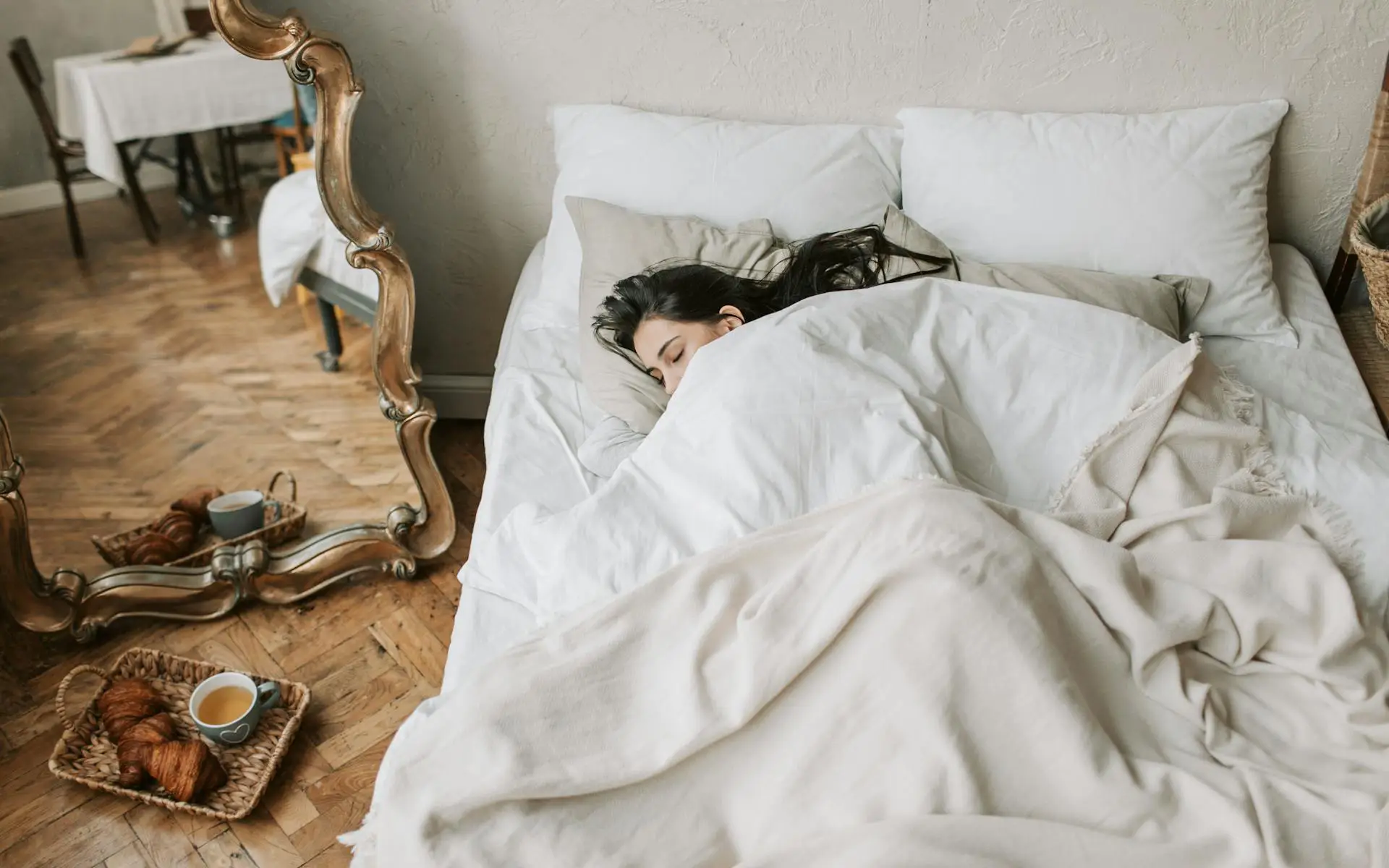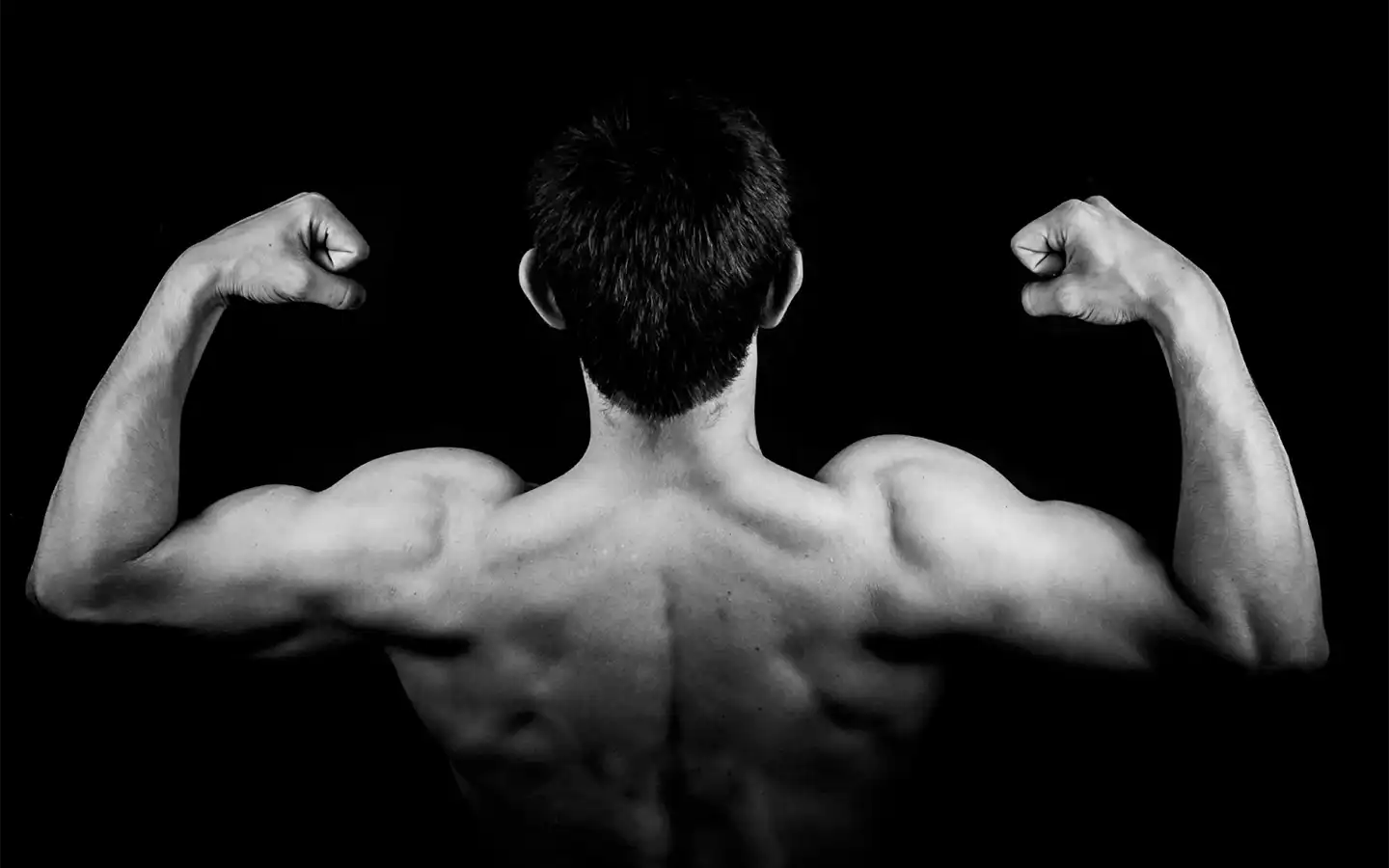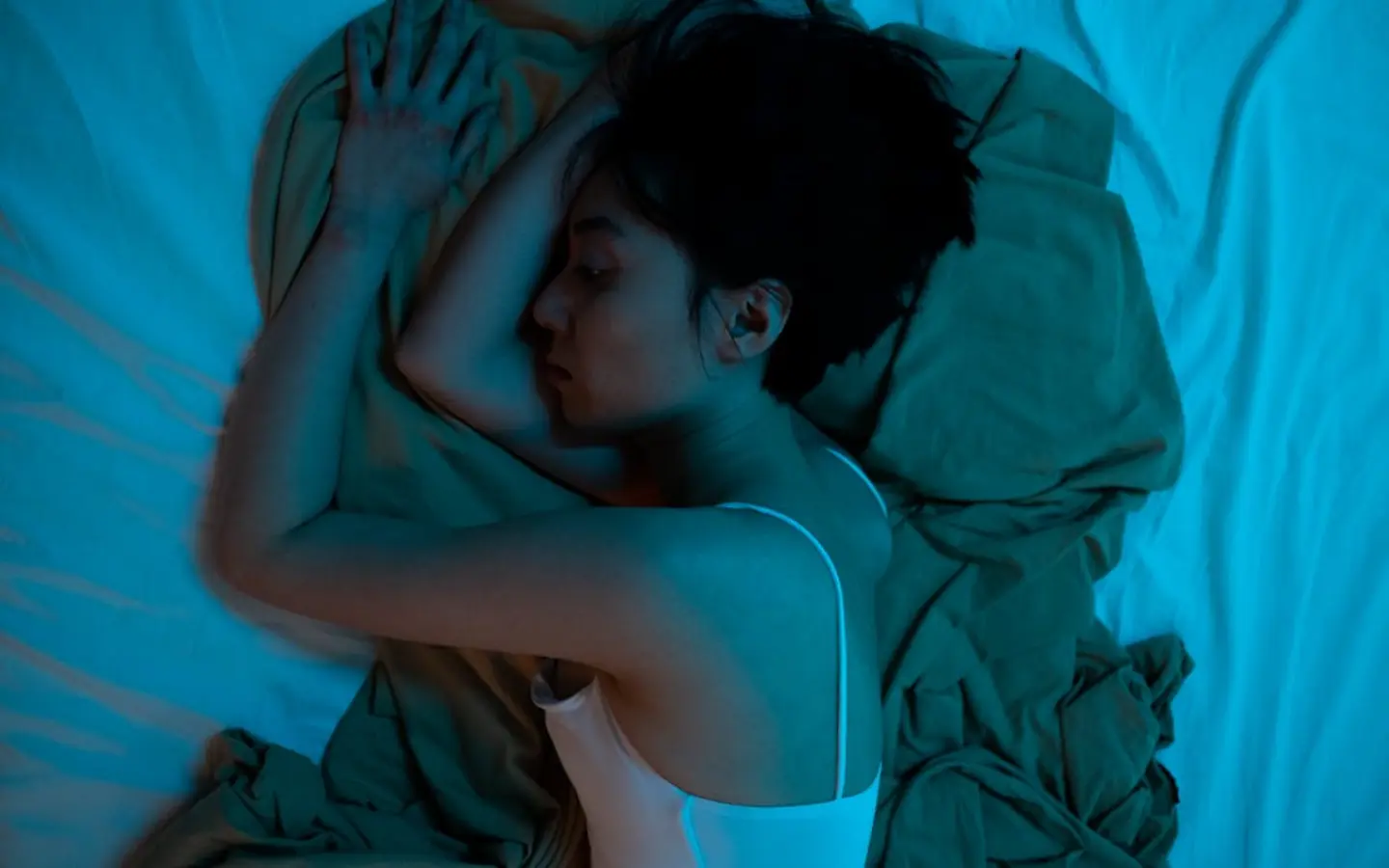November 18, 2025
Is 7 Hours of Sleep Enough, or Does Sleep Quality Matter More for Recovery?
We are often pushed by modernity to work long hours and neglect our sleep. But if you want to reap the benefits of your hard work and enjoy long-term health, prioritizing quality rest is non-negotiable.
For years, we’ve been told that eight hours of sleep is the magic number. We see endless gadgets, advice columns, and scary messaging claiming that if we don't hit that "perfect" number each night, we are doomed to bad health, facing everything from high blood pressure to Alzheimer’s disease.
While sleep duration is undeniably important (we need sleep to live after all), fixating on the number of hours alone is not going to make much difference. If all you can afford is 7 hours of sleep each night, that might as well be enough for you, as long as those hours are truly restorative.
How Much Sleep Do We Need To Stay Healthy?
How many hours of sleep should you get each night? Is 7 hours of sleep enough?
For the average adult, the current recommendation is somewhere between seven to nine hours of sleep per night. The Center for Disease Control (CDC) recommends a minimum of seven hours of sleep a night for the average adult. Getting less than seven hours of sleep on a regular basis is associated with health problems, including cardiovascular disease, diabetes, and depression.
Large-scale epidemiological studies support this, showing that once you drop below (or go over) that 7-to-9 hour reference point, your mortality risk starts to increase.
However, this recommendation of seven to nine hours is an average, and the duration of a good night's sleep can be different for different people. Some adults need a full eight hours, while others are perfectly fine on six hours if they are naturally "short sleepers".

Why Your Hours of Sleep Might Be Lying to You
You know how you can intuitively tell whether you slept well or not?
Similarly, you can tell if you are getting enough sleep or not by paying attention to your energy levels throughout the day. If you wake up feeling sluggish, irritable, or mentally foggy, even after logging 7-9 hours in bed, then sleep duration is not the issue for you.
The reason why you shouldn’t blindly trust the clock is the fact that you can’t distinguish between time spent in bed and actual time spent asleep, unless you are using a sleep tracker to calculate your sleep score. This score tells more than just how long you slept last night. It shows whether your system had the right conditions it needed to repair, reset, and restore.
When scientists examined this data, they noticed that even the people who got the recommended 8-9 hours of sleep still didn’t get the recovery they needed because of sleep fragmentation and untreated sleep disorders.
Fragmented Sleep
One of the greatest enemies of restorative sleep is fragmentation. You might think you slept soundly for seven hours, but in reality, your night may have been littered with brief disruptions that you don’t even remember in the morning.
If you have too many arousals that interrupt deep sleep, you may experience substandard mental performance, difficulty concentrating, and morning grogginess – all of which are similar to actual sleep deprivation.
The Bidirectional Link Between Sleep Disorders and Stress
Poor sleep quality is often linked to mental and emotional state. Both mental and physical hyperarousal keeps the nervous system in a "fight-or-flight" response, preventing you from reaching and staying in the deeper, more restorative stages of sleep.
Sometimes poor quality sleep can be "masquerading as long sleep".
People who have poor quality sleep often try to compensate by staying in bed longer. If you are clocking nine or ten hours but feel tired and unrefreshed after that, talk to a doctor to rule out any underlying conditions.
[CTA_INSERT]
How Sleep Trackers Help You Understand Sleep
Wearable health trackers, like smart rings, bands, and watches, calculate detailed biometric signals that show the blueprint of your night. While simply tracking alone isn’t enough for better sleep, these devices provide the necessary context to understand why you feel exhausted.
Sleep trackers can calculate things like:
Heart Rate Variability (HRV), which measures the variation in time between heartbeats. Low HRV during sleep (under 40 milliseconds or a sharp drop from your average) is a strong sign that your nervous system has not fully recovered from stress or strain, even if your sleep duration was normal.
Deep Sleep Percentage: If your deep sleep is consistently short or fragmented (under 10% of total sleep), you may struggle with focus, memory, and cognitive tasks the next day.
REM Sleep Percentage: REM sleep is essential for emotional processing and regulating your nervous system. If your REM is low (under 15% of total sleep), you may feel emotionally sensitive or flat the following day.
Resting Heart Rate and Movement: An elevated resting heart rate (above 50 beats per minute during sleep) signals internal tension. Frequent movement or micro-awakenings show that your body is staying on alert and failing to enter deeper stages of rest.
By using sleep tracker, you can determine if seven hours of sleep are enough for you, and how much sleep you are losing. If your tracker shows low Deep Sleep, high movement, or poor HRV, that seven hours was likely far less effective than you assumed.
The Dangers of “Trying Too Hard”
Having all this data can cause some people to become obsessed with achieving "perfect sleep." This is a real condition called orthosomnia, and all this anxiety can ironically cause more sleep problems.

Recommended Hours Of Sleep By Age
Here is a quick look at the recommended hours of sleep by age group. Apart from age, a lot depends on genetics, which is why there is no perfect number of hours that would work for everyone.
How To Find Your Optimal Sleep Duration
To figure out if your current hours of sleep are enough, answer these questions:
1. Do I feel reasonably well-rested during the day?
2. Do I sleep through the night without disturbances, or fall asleep easily if I wake up?
3. Can I stay awake through the day without involuntarily falling asleep?
If the answer is Yes to all three, you probably don't need to worry.
If the answer is No to most, then the solution isn't just aiming for an arbitrary time, but improving the quality of your current sleep. You can do this by first fixing your sleep schedule, which means going to bed and waking up at roughly the same time, including weekends.
You can use a sleep tracker to stop guessing about your current sleep quality, and track the progress as you go, just don’t take it too far where it becomes a distraction instead.

Improving Your Sleep Quality with Kimba
When you recognize that your hours of sleep are being sabotaged by poor quality, frequent arousals, or underlying stress, you need a solution that can intervene in real time, non-invasively, and intelligently.
Kimba is the first smart diffuser that uses scent therapy to support your nervous system during sleep, based on the person’s biometric data. When the body shows signs of stress or disruption, Kimba responds with a gentle pulse of scent that supports nervous system balance and encourages deeper, more stable sleep.
The scent blends Kimba uses are clinically tested and formulated to work with the limbic brain, which plays a central role in regulating mood, stress, and sleep quality.
You can connect Kimba to popular devices like Oura, WHOOP, Garmin, Apple Watch, or any health tracker synced through Apple Health. While your wearable tracks patterns like HRV, heart rate, and sleep stages, Kimba monitors those same signals for signs that your recovery might be interrupted.
Kimba adapts to your patterns
Kimba learns from your sleep patterns over time. Its AI adapts to how your body manages recovery, improving the timing and precision of its responses. This helps stabilize HRV, reduce nighttime disruptions, and support more consistent, restorative sleep – especially when your system is under pressure.
Who can use Kimba
Kimba is for anyone who wants to improve their sleep and overall well-being. That can be parents, students, or professional athletes. Kimba adapts to anyone, no matter if they experience sleep problems due to stress, struggle with chronic insomnia, work irregular hours, or simply want to improve their recovery. Kimba is easy to use and fits naturally into any lifestyle, making better sleep accessible for all.
Ready to experience how scent, science, and real-time support can change the way you sleep?
Get early access to Kimba, and discover what Kimba can do for your nights!


Continue reading

How High Training Load Can Disrupt Sleep Quality

The Link Between Poor Sleep and Muscle Recovery


